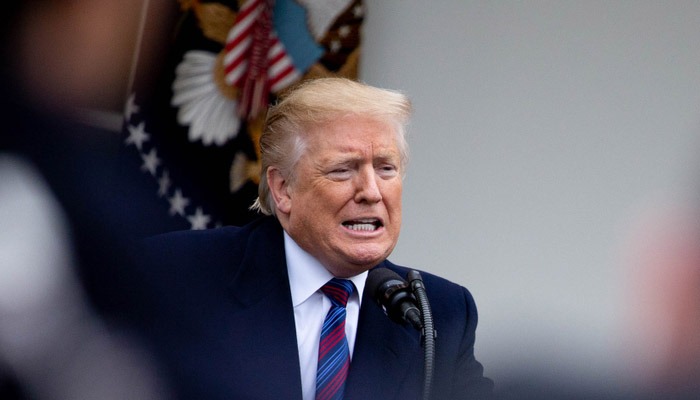Shutterstock
Trump was blamed for ISIS resurgence in Syria and Iraq, with about 14,000 to 18,000 militants.
A report from the Pentagon inspector general says that Iraqi and U.S.-backed Syrian forces are struggling to contain the ISIS insurgency, and the report specifically says that President Donald Trump’s decision to rapidly pull troops out of Syria and pull diplomatic staff from Iraq is to blame.

Even though Trump claimed that ISIS was defeated and the caliphate was crushed, the Department of Defense’s most recent quarterly report to Congress about the effectiveness of the U.S. Operation Inherent Resolve mission says that ISIS has transitioned to “an insurgency in Syria, and it intensified its insurgency in Iraq.”
Experts and officials repeatedly warned that rapidly pulling troops out of Syria would enable ISIS to regroup into an insurgency.
The report specifically points to Trump’s troop drawdown in Syria as contributing to instability in the region. That drawdown left the Syrian forces without training or support that they needed to confront an ISIS insurgency.
It is estimated that ISIS currently has between 14,000 and 18,000 combatants, who are posing a violent threat to civilians in both Syria and Iraq. They are carrying out crop burnings, assassinations, and ambushes in both countries.
ISIS is also generating revenue again, but employing decentralized methods that are difficult to track, such as kidnapping for ransom, extorting civilians, and skimming money from rebuilding contracts.
Brett McGurk, the former special presidential envoy for the Global Coalition to Counter ISIS, warned that Trump’s policies would give “new life” to ISIS, and would feed a chaotic environment for extremists to thrive. He resigned his post after Trump announced the drawdown.
Trump campaigned on his “America First” policy, which included a promise to withdraw the U.S. from the Middle East. But his shortsighted decision-making has not only destabilized Syria and Iraq, but will also potentially do the same in Afghanistan.
The U.S. is negotiating with the Taliban to withdraw from Afghanistan, where an ISIS branch is currently gaining traction and recruiting militants. The branch, known as ISIS Khorasan, sees Afghanistan as the perfect place to wage holy war with recruits that are unhappy with the Taliban’s decision to operate as a political entity instead of a jihadi one.